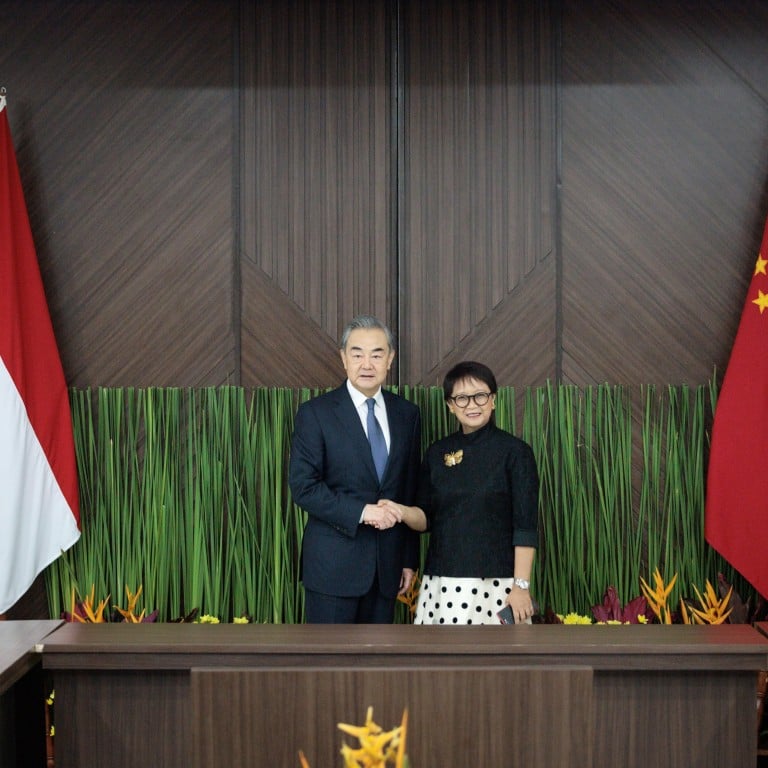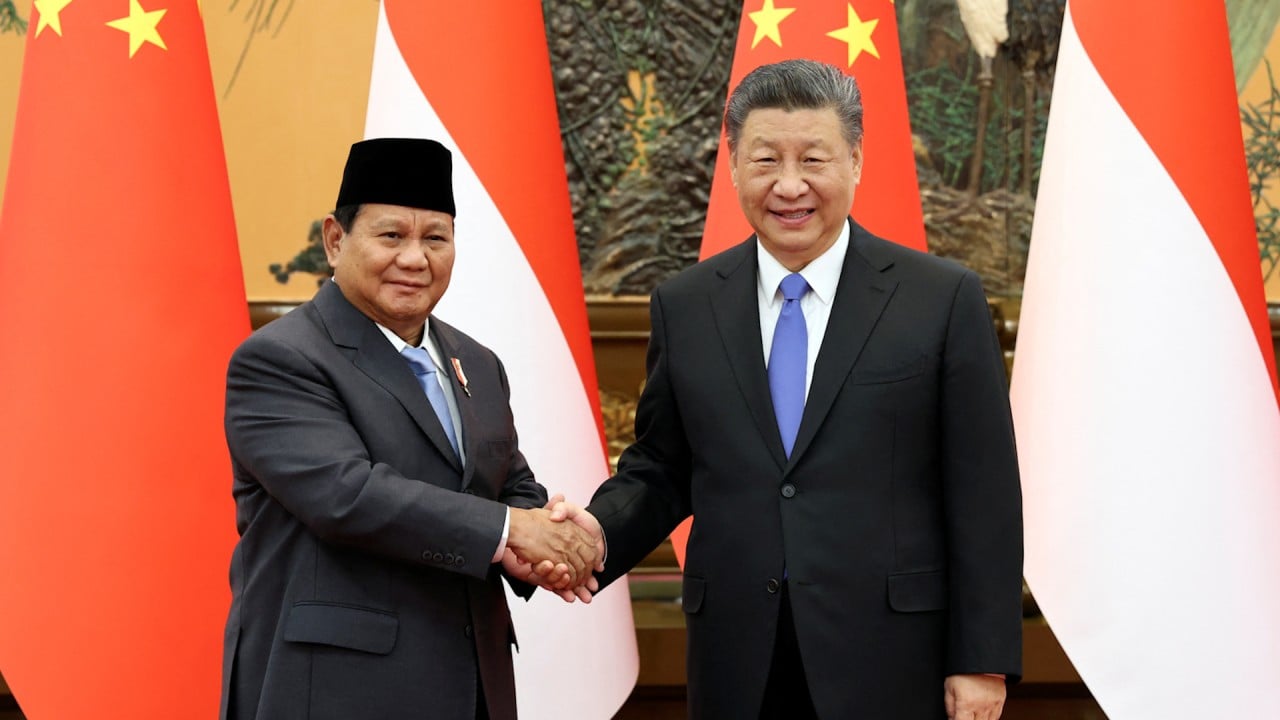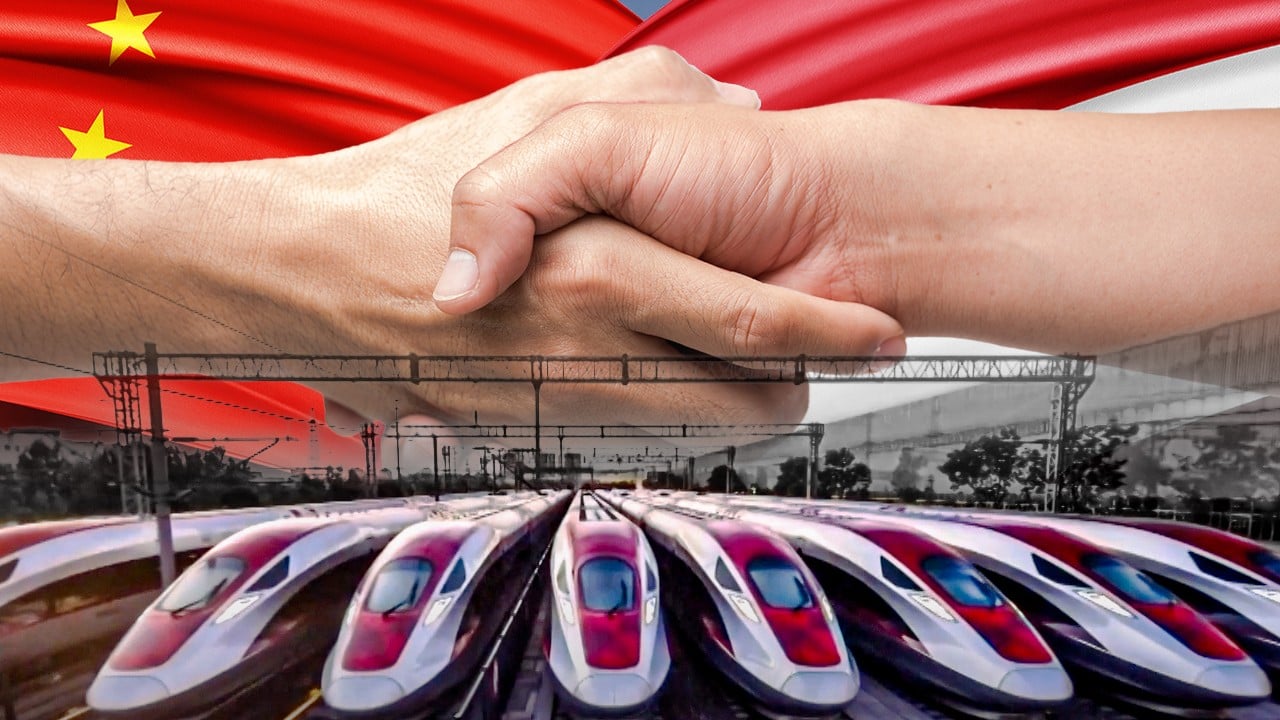
In Indonesia, China’s foreign minister warns against ‘bloc confrontation’ in Indo-Pacific
- Wang Yi makes several veiled swipes at the US in a press conference with his Indonesian counterpart Retno Marsudi, also hitting out at trade protectionism
- He also calls for an immediate ceasefire in Gaza and criticised Washington for vetoing UN resolutions
Wang made several references to the US at the start of a six-day tour that also includes Cambodia and Papua New Guinea.
In a joint press conference with his Indonesian counterpart Retno Marsudi, Wang slammed trade protectionism and the formation of “blocs” that risk undermining regional security.
“We advocate inclusive economic globalisation, oppose unilateralism and protectionism, oppose ‘decoupling and breaking chains’ and ‘small yards and high fences’, and [want to] jointly maintain the stability of industrial and supply chains,” he said in Jakarta.
“We must be highly vigilant about the make-up of various ‘small circles’ in the region, oppose any attempt to create bloc confrontation, and cherish and maintain the hard-won peace and stability in the region.”
It has also strengthened ties with its Indo-Pacific allies through different security alliances to counter what they call China’s growing “assertiveness” in the region.
Washington had a historic upgrade of security ties with Japan last week, while it also held a first-ever trilateral summit with Japan and the Philippines.
Wang and Retno both called for peace and stability in the region, which Retno said could only be achieved if “all parties respect international law”.
China, Japan visits a ‘major diplomatic coup’ for Indonesia’s Prabowo
The pair also jointly called for an immediate ceasefire in Gaza and full United Nations membership for a Palestinian state.
Wang also criticised the US for repeatedly vetoing UN resolutions regarding a ceasefire in Gaza and for abstaining in the first resolution passed since the start of the conflict.
The comments came a day before another vote at the UN Security Council on granting Palestine full membership, which the US is likely to veto. Palestine was granted observer status in 2012.
Wang urged the US to obey the UN Charter and international law, saying: “The United States has always claimed to abide by the ‘rules-based international order’, and the biggest rule is ... the United Nations Charter.”
He also warned that “the Security Council cannot become a tool for individual countries to play geopolitics, let alone a stage for powerful hegemony to flourish”.
Indonesia has attracted extensive belt and road investment, including help in building its new capital in Nusantara on Borneo and the Jakarta-Bandung railway, the first high-speed rail link in Southeast Asia.

 - Kawala Xie.jpg?itok=NogZcyZ-&v=1661304068)

